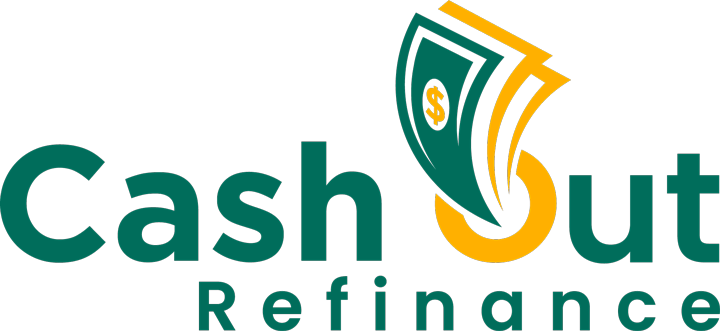Refinancing your mortgage can be a powerful financial strategy, especially if you’re looking to tap into your home equity. Two of the most popular options for homeowners are the FHA cash-out refinance and the VA cash-out refinance. Both loan types allow homeowners to access the equity they’ve built in their homes by refinancing their existing mortgage and taking out more than what they owe, but they differ in terms of eligibility, credit requirements, loan limits, and mortgage insurance.
In this comparative guide, we’ll dive deep into the key differences between the FHA and VA cash-out refinances. Whether you’re a veteran or a homeowner with limited equity and a lower credit score, understanding these options will help you choose the right refinancing strategy for your financial needs.

Overview of FHA Cash-Out Refinance
An FHA cash-out refinance is insured by the Federal Housing Administration (FHA) and allows homeowners to refinance their mortgage and take out additional cash based on their home’s equity. This loan is designed for borrowers who may have lower credit scores or limited equity in their homes and need more flexible loan terms. It provides a great opportunity for those who don’t qualify for conventional refinancing options.
Overview of VA Cash-Out Refinance
A VA cash-out refinance is a similar loan option, but it’s backed by the U.S. Department of Veterans Affairs (VA). This program is specifically available to active-duty service members, veterans, and eligible surviving spouses. It allows qualified borrowers to refinance up to 100% of their home’s value, making it an attractive option for those who qualify and need to access a larger portion of their home’s equity. Since the loan is guaranteed by the VA, it typically offers more favorable terms, including no private mortgage insurance (PMI).
Key Differences Between FHA and VA Cash-Out Refinance
1. Credit Score Requirements
One of the primary differences between the FHA cash-out refinance and VA cash-out refinance lies in the credit score requirements. Each loan has specific guidelines that impact who can qualify and under what terms.
- FHA Cash-Out Refinance: To qualify for an FHA cash-out refinance, borrowers typically need a credit score of at least 580. While FHA loans are known for their lenient credit requirements, borrowers with credit scores below 580 may still qualify, though they might face higher interest rates or more stringent terms. This lower threshold makes the FHA cash-out refinance ideal for homeowners who have lower credit scores but still want to leverage their home’s equity.
- VA Cash-Out Refinance: The VA cash-out refinance is more flexible in terms of credit requirements. While the VA doesn’t set a minimum credit score, most lenders require borrowers to have a credit score of at least 620. However, VA loans are generally more forgiving than conventional loans when it comes to credit scores, and veterans with lower scores may still be able to secure favorable terms compared to conventional or FHA loans.
2. Loan Limits
Loan limits differ significantly between FHA and VA cash-out refinance options. These limits determine how much of your home’s value you can refinance and how much cash you can take out.
- FHA Cash-Out Refinance: With an FHA cash-out refinance, you can refinance up to 80% of your home’s appraised value. This means if your home is worth $300,000, you can borrow up to $240,000. After paying off your current mortgage, the remaining amount is available to you as cash. This loan limit can be restrictive for homeowners who need to access more of their home’s equity but is still higher than many conventional cash-out refinance options, which typically allow only 70-75% LTV.
- VA Cash-Out Refinance: One of the most significant advantages of the VA cash-out refinance is that it allows eligible veterans and service members to refinance up to 100% of their home’s value. If your home is appraised at $300,000, you can borrow the full $300,000, using the excess amount (above your current mortgage balance) as cash. This high LTV makes the VA cash-out refinance one of the most flexible and powerful tools for veterans looking to tap into their home’s equity.
3. Mortgage Insurance Requirements
Mortgage insurance can be a major cost factor in any loan, and the requirements differ significantly between the FHA cash-out refinance and VA cash-out refinance.
- FHA Cash-Out Refinance: One of the downsides of the FHA cash-out refinance is the requirement for mortgage insurance premiums (MIP). Borrowers must pay an upfront MIP of 1.75% of the loan amount, as well as annual MIP, which typically ranges from 0.45% to 1.05%, depending on the loan’s LTV ratio and term. The MIP is mandatory regardless of how much equity you have in your home and cannot be canceled unless you refinance into a different type of loan or sell the property.
- VA Cash-Out Refinance: One of the key advantages of a VA cash-out refinance is that it does not require private mortgage insurance (PMI), regardless of your loan-to-value ratio. This makes VA loans significantly more affordable in the long run compared to FHA loans, especially for borrowers refinancing with a high LTV. Instead of mortgage insurance, VA borrowers are required to pay a funding fee, which helps cover the cost of the VA loan program. The funding fee typically ranges from 2.3% to 3.6% of the loan amount, depending on whether it’s your first time using the benefit and the size of your down payment.
Pros and Cons of FHA and VA Cash-Out Refinances
Both FHA and VA cash-out refinances offer significant benefits, but they also come with potential downsides. Here’s a breakdown of the pros and cons for each loan type:
FHA Cash-Out Refinance Pros:
- Lower Credit Score Requirement: With a minimum credit score of 580, an FHA cash-out refinance is accessible to borrowers with lower credit scores.
- More Flexible Eligibility: Even if you have limited equity or a less-than-perfect credit history, you may still qualify for an FHA cash-out refinance.
- Available to Non-Veterans: Unlike VA loans, FHA loans are available to a wide range of borrowers, including those who aren’t veterans or service members.
FHA Cash-Out Refinance Cons:
- Mortgage Insurance Premiums (MIP): Borrowers must pay both upfront and annual MIP, increasing the overall cost of the loan.
- Loan Limit: FHA loans only allow you to borrow up to 80% of your home’s value, limiting the amount of cash you can take out.
- Primary Residence Requirement: The home being refinanced must be your primary residence.
VA Cash-Out Refinance Pros:
- No Mortgage Insurance: VA loans do not require mortgage insurance, making them more affordable for borrowers over the long term.
- 100% Loan-to-Value (LTV): VA cash-out refinances allow you to borrow up to 100% of your home’s value, providing more cash-out opportunities than FHA or conventional loans.
- Lower Interest Rates: VA loans typically come with lower interest rates compared to FHA and conventional loans, saving borrowers money on interest payments.
VA Cash-Out Refinance Cons:
- VA Funding Fee: While VA loans don’t require mortgage insurance, they do require a funding fee, which can be a significant upfront cost (though it can be rolled into the loan).
- Eligibility Restrictions: VA loans are only available to veterans, active-duty service members, and eligible surviving spouses, limiting the number of borrowers who can take advantage of this program.
- Primary Residence Requirement: Like FHA loans, the VA cash-out refinance can only be used on primary residences.
Who Benefits Most from Each Type of Refinance?
Now that we’ve covered the key differences and pros and cons of each refinance option, let’s explore which type of borrower benefits most from the FHA cash-out refinance and VA cash-out refinance.
Who Benefits Most from an FHA Cash-Out Refinance?
- Borrowers with Lower Credit Scores: If your credit score is below 620, you may have difficulty qualifying for a conventional or VA cash-out refinance. An FHA cash-out refinance is ideal for borrowers with credit scores between 580 and 619, as it offers more lenient credit requirements.
- Homeowners with Limited Equity: FHA cash-out refinances allow homeowners to refinance with as little as 20% equity in their home. If you haven’t built up substantial equity but still want to access cash from your home, an FHA refinance may be the best option.
- Non-Veterans: Since VA loans are only available to veterans, active-duty service members, and surviving spouses, an FHA cash-out refinance is the better option for non-veterans who still want to leverage their home’s equity.
Who Benefits Most from a VA Cash-Out Refinance?
- Veterans and Service Members: The VA cash-out refinance is specifically designed for veterans, active-duty service members, and eligible surviving spouses. If you fall into one of these categories, a VA loan is likely your best option due to its favorable terms and lack of mortgage insurance.
- Homeowners with High Equity Needs: If you want to borrow up to 100% of your home’s value, the VA cash-out refinance is the only loan program that allows you to do so. This makes it ideal for borrowers who need to access a larger portion of their home’s equity for debt consolidation, home improvements, or other major expenses.
- Borrowers Seeking Low Interest Rates: VA loans typically offer lower interest rates than FHA and conventional loans, making them a cost-effective option for veterans and service members looking to refinance.
Final Thoughts
Choosing between an FHA cash-out refinance and a VA cash-out refinance comes down to your eligibility and financial situation. If you’re a veteran or active-duty service member, the VA cash-out refinance offers unparalleled benefits, including the ability to refinance up to 100% of your home’s value and avoid mortgage insurance premiums. For homeowners with lower credit scores or non-veterans, the FHA cash-out refinance provides a flexible option that still allows you to access your home’s equity, albeit with the added cost of mortgage insurance.
Ultimately, the decision between FHA vs VA cash-out refinance will depend on your specific needs, eligibility, and long-term financial goals. Be sure to consult with a mortgage professional to explore both options and find the best refinance solution for your situation.

